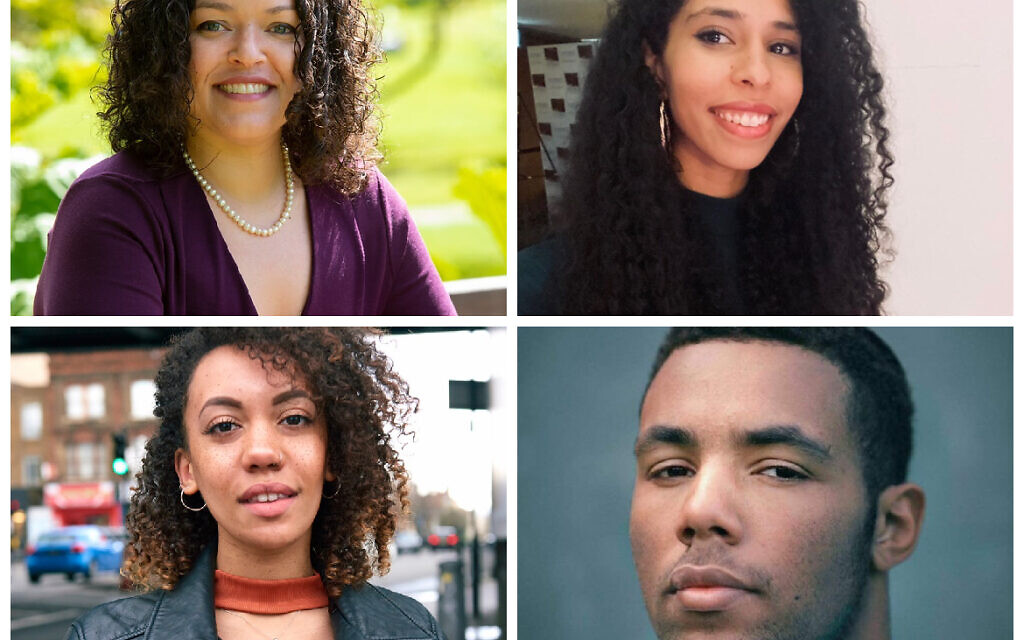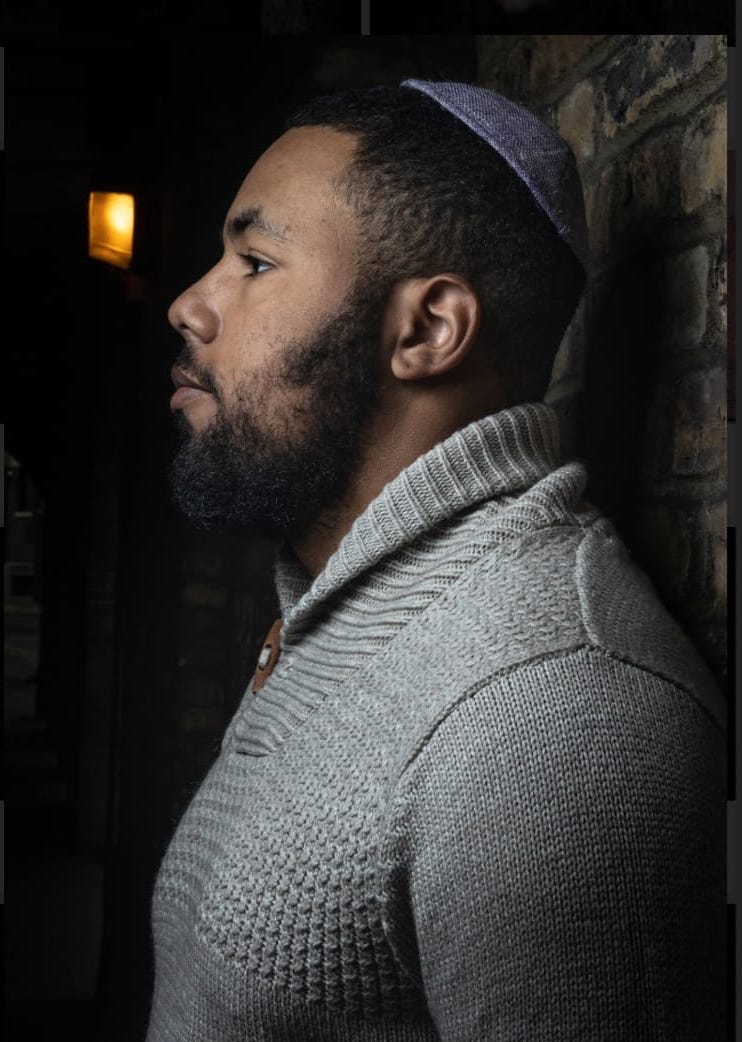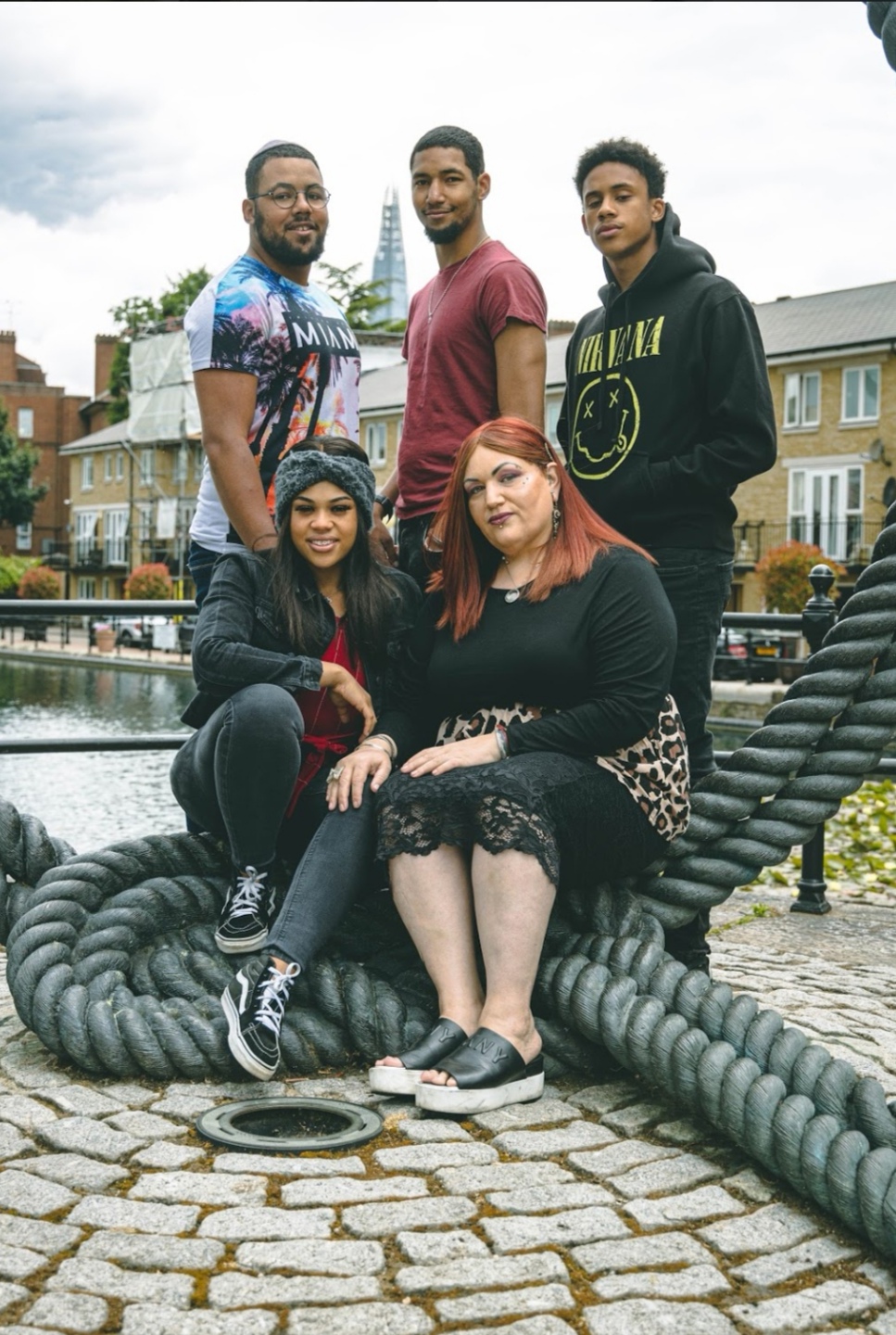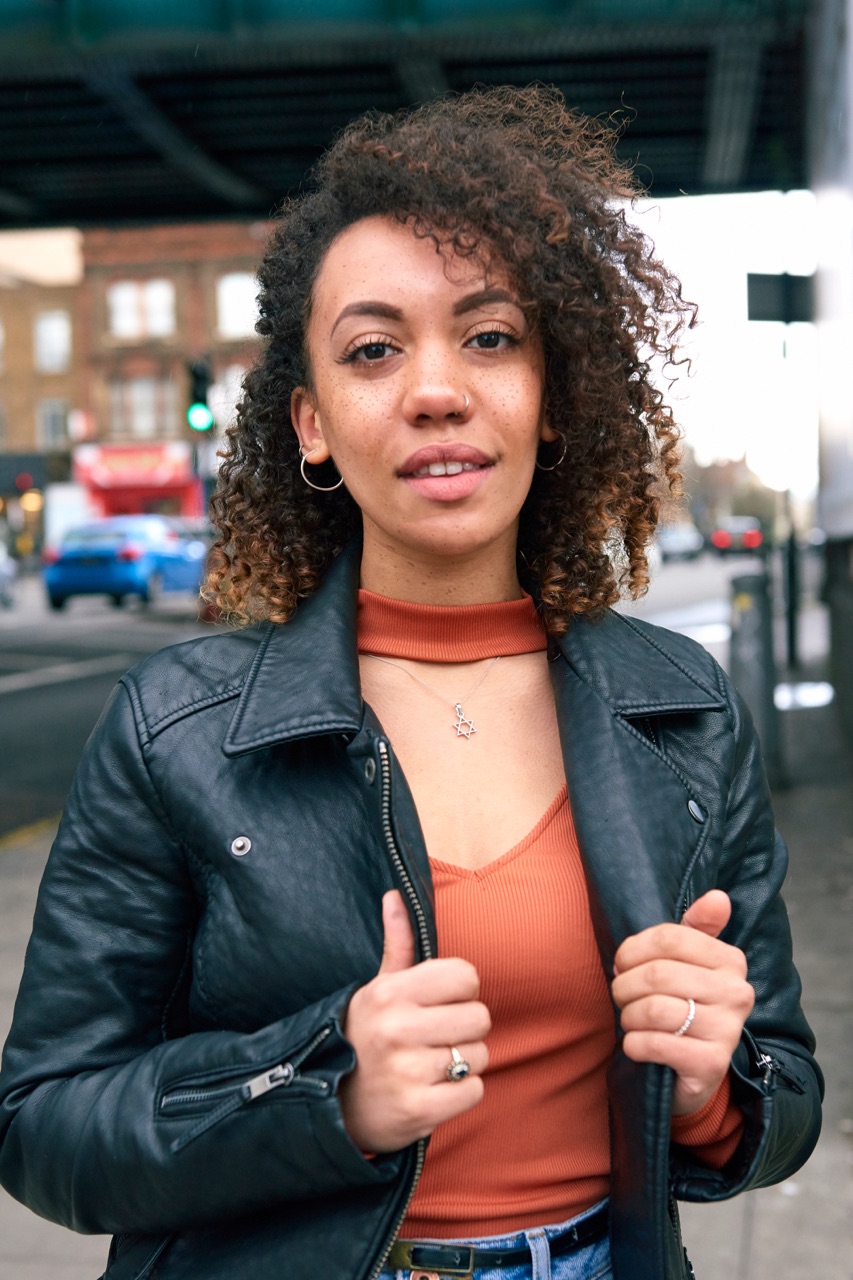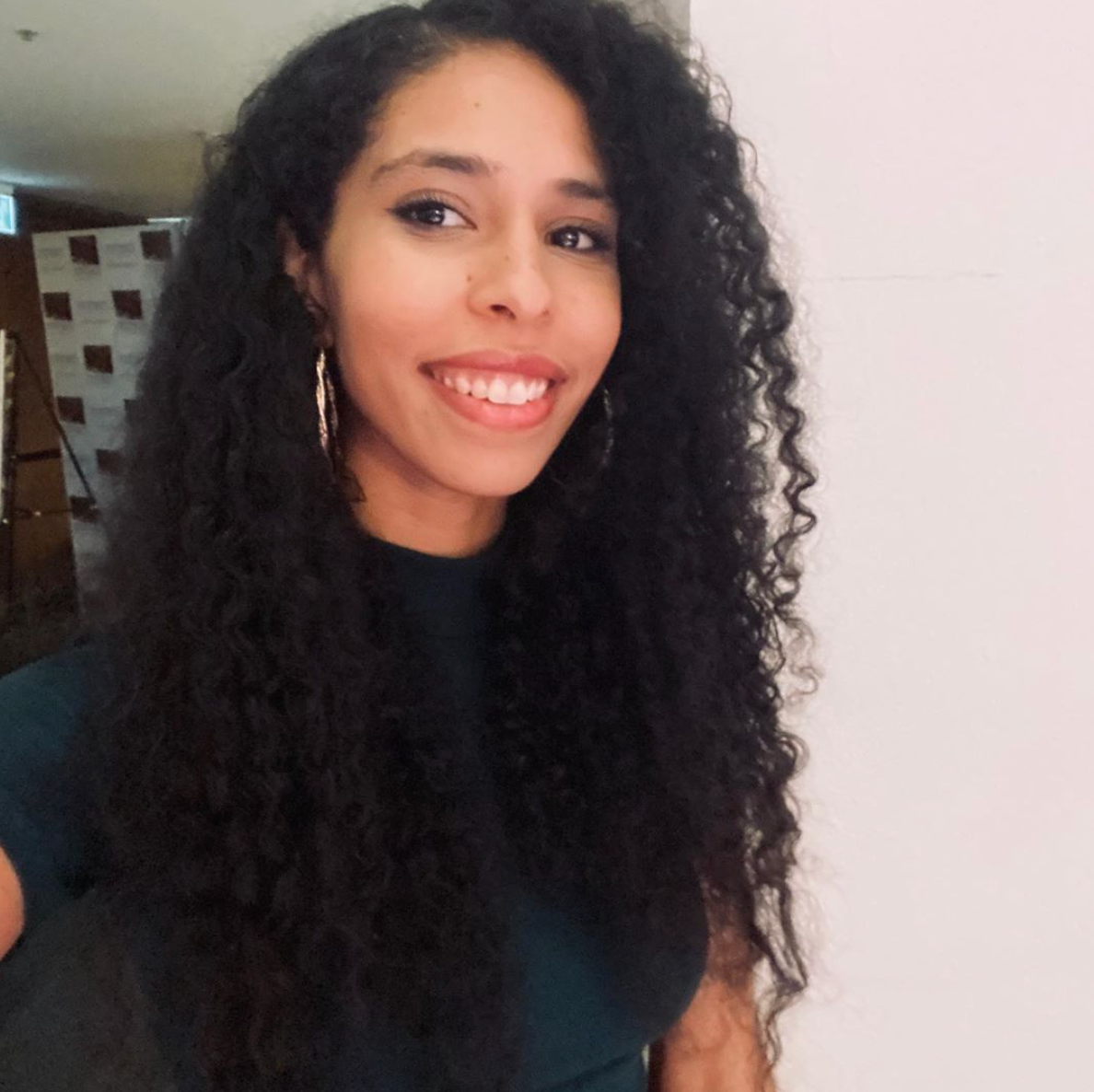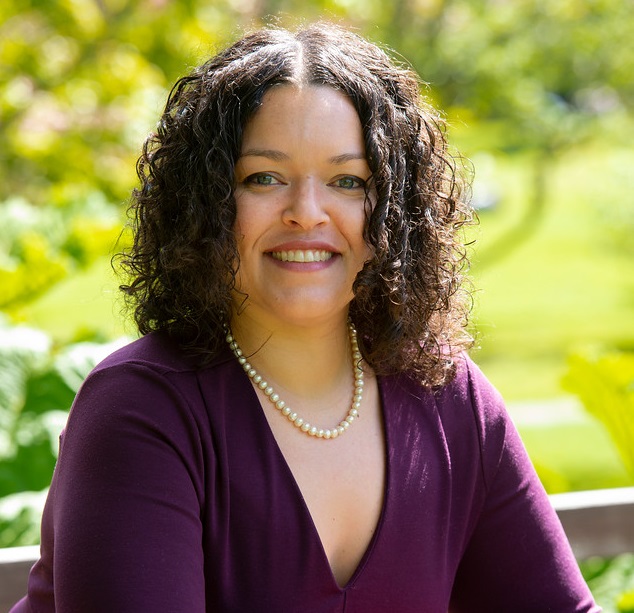‘I have to justify my Judaism because of my skin colour’
Four prominent black British Jews discuss their experiences of racism in the Jewish community and the challenge facing the Board of Deputies’ Commission on Racial Inclusivity.
Jodeci Joseph, 23, whose father is Nigerian and whose Jewish mother is from Hackney, identifies as Modern Orthodox. He went to a Jewish school, lives in Ilford, wears a kippah, and attends United Synagogue services, normally in Golders Green.
“I’ve been refused entry into a synagogue because they said I wasn’t Jewish, and I’ve faced a lot of questions on the door. Even before the door I’m constantly getting stares from the CST volunteers on the street as I’m walking to shul on Shabbat in my suit. I’ve had CST follow me before. It makes me feel really uncomfortable.
When I go to a new synagogue, I get anxiety because I get questioned for up to ten minutes. It’s brutal. For Simchat Torah 18 months ago I was told I wasn’t Jewish so couldn’t come in. My white Jewish friends, some of whom went to that synagogue, were allowed straight in but my brother and I weren’t, meaning we couldn’t even go in and speak to the people inside who knew us. That was very traumatising. He was a non-Jewish security guard and didn’t even check with the rabbi. My mum called up the next day, I think he got fired.
Get The Jewish News Daily Edition by email and never miss our top stories Free Sign Up
I understand we need profiling, but if I look different and don’t come to shul, don’t question me in a hostile way. You don’t need to be aggressive and make me feel like I’m a criminal. And if you’re going to question visitors you don’t know and don’t recognise, don’t just question those of colour. The profiling should be justified, too. How many black people have attacked synagogues?
Just a few months ago I went to a synagogue I’d been to a few times before, but was questioned extensively on the door. Congregants who knew me were walking past saying ‘Hi Jodeci’ but still it continued. It was so embarrassing.
The guard actually went in and got the head of the shul to come out of the service to verify me! It affected me the whole day, I couldn’t concentrate on my prayer. I just felt frustrated and angry that I’d had to justify my Judaism just because of the colour of my skin.
For Simchat Torah 18 months ago I was told I wasn’t Jewish so couldn’t come in. My white Jewish friends, some of whom went to that synagogue, were allowed straight in but my brother and I weren’t, meaning we couldn’t even go in and speak to the people inside who knew us. That was very traumatising
Once I’ll get into the shul I get a lot of stares, like I’m a new species or something. I also get lots of personal questions, asking if I converted and such.
It’s like they want an interesting story to fulfil some social fetish. It makes me feel uncomfortable, like I don’t fit in and like I can’t be myself.
It’s as if basic social etiquette goes out the window. If you come up to me and say hello, offer me a seat and don’t ask for my life story, just talk to me like anyone else, then I’ll feel welcome. If you make me feel like I’m on stage then I won’t.
Congregants don’t need to know my life story. I’m Jewish from birth but that doesn’t matter – Jewish texts tell us to make converts feel extra welcome. I know people who are converting who struggle every week to find a Friday night meal to go to – they’re just not invited.
One Indian guy who has spent years converting quit very recently because of the racism, he wrote a whole thing on Facebook. It’s sad that people feel like this. I know about 20-30 black Jews in London they all think change is needed. They all experience similar things. A friend of mine, who teaches at a Jewish school, was even called the n-word within the community.
I just felt frustrated and angry that I’d had to justify my Judaism just because of the colour of my skin.
There are things people can do to help. For a start, don’t stare. Make new people feel welcome in shul. Train the guards. Tell them that Jews can be black as well. There’s a lot of work to be done in the Jewish community. The Jewish community’s history of persecution means we should be all the more empathetic and welcoming to people of different races.
This is a non-denominational issue, and people listen to their leaders, so every leader needs to ask: what can we do better? The Jewish people have been persecuted for thousands of years. We can’t be doing it to our own people.
- Follow Jodeci’s motivational speaking page here: https://www.facebook.com/jodecitalks123
- READ MORE: Stephen Bush: ‘Am I black enough to do this? Am I Jewish enough to do this?’
__
Jessica Morgan, 27, who lives in Essex and describes herself as “part latkes, part plantain,” is a journalist who recently recovered after contracting the coronavirus in March.
“I’m adopted and embraced my Judaism in my early 20s after learning more about my biological mother’s background and heritage, but the community I wanted to join wasn’t very friendly or welcoming because of the way I looked. Like other black Jews I know, I got stared at in shul, and felt like I had to jump through hoops to be accepted. It’s improved, but the community needs to use this opportunity to better itself and open its doors to people on the outskirts.
I attended the #BLM protests last Sunday. It warmed my heart when I looked up to see a big banner reading: ‘Jews for Black Lives Matter.’ I felt so grateful that people showed up for us and I hope they continue to do so.
Yet the last two weeks have been extremely difficult for me. My anxiety has skyrocketed seeing all these far-right football hooligans protesting #BLM, abusing the right to free speech by using disgusting abusive racial language and making Nazi salutes.
It’s felt like a gut punch, watching it all unfold. I’m terrified. I live in fear not only of racism but antisemitism too. I feel like I have the biggest target on my head right now and it’s not a nice place to be.
..the community I wanted to join wasn’t very friendly or welcoming because of the way I looked
I wear my Magen David around my neck with pride but I can’t change the colour of my skin and now wonder if I’ll be attacked outside. Being black and Jewish is especially hard because you’re members of the two biggest minorities, in a world where you feel neither wanted nor appreciated.
On the statues, Churchill was a great British leader who fought Nazi Germany, so I disagree with those campaigning to take his statue down, yet when they tore Edward Colston’s statue down I felt total joy. My Jamaican ancestors were enslaved. Statues celebrating slave masters should be removed immediately. I’m shocked that anyone could disagree with that. A statue of Hitler would be destroyed instantly, so why are we not offered the same respect?
George Floyd’s brutal murder has been a catalyst for change. Enough is enough. The world is waking up. I was disappointed with the Jewish community’s silence at first, but it seems to have finally woken up to the severity of racism in recent days. The community still tends to think that only white people can be Jews, but we have black Jews and Jews of colour all over the world. If people broaden their mind-sets and educate themselves they’ll be shocked to see the huge overlap and connection between Jews and black people.
I wear my Magen David around my neck with pride but I can’t change the colour of my skin and now wonder if I’ll be attacked outside
To those who want to be a true ally to a black Jew, I’d say: please don’t question my Jewishness, or ask me if my mother’s Jewish, or if I had a bat mitzvah, or quiz me on my Hebrew, and please don’t act like I’m wearing my Magen David as if it’s a fashion statement. We hold ourselves to higher standards of acceptance and forgiveness so let’s practice what we preach. No culture or religion is full of people who look exactly the same. Jews are no different.
- Follow Jessica on Twitter: https://twitter.com/jnoahmorgan
__
Nadine Batchelor-Hunt is a writer, journalist and the former president of the Cambridge University Black and Minority Ethnic Campaign. She has suffered online antisemitic abuse, including instances that have required police involvement.
“Being a black Jew can feel like an alienating space. In an overwhelmingly white, Ashkenazi diaspora community, being black singles you out and makes you ‘other’. It can make the British Jewish community an intense, upsetting, and difficult space.
You get stared at when you go in a kosher shop, gawked at when you go to synagogue, questioned on how you’re Jewish at Jewish social events, asked how come you know Hebrew. As you proceed towards the synagogue you know you’ll be stopped and searched on your way in. While these things may seem insignificant to some, together they create an atmosphere of being constantly on edge. It makes me feel as if I’ll never truly be Jewish.
Overwhelmingly, it seems that anti-black racism, and therefore racism towards black Jews, is less of a priority to Jewish communal organisations. Their attitude is one of ambivalence. While my own denomination – Masorti – has made a concerted effort to address the issue, I and many other black Jews feel worthless, invisible and abandoned by the Jewish establishment.
Black Jews and Jews of colour may be small in number in the UK, but we exist. The narrative tends to acknowledge Jews of colour in Israel or abroad, such as Mizrachi and Ethiopian communities, but pays little attention to those of us over here.
Overwhelmingly, it seems that anti-black racism, and therefore racism towards black Jews, is less of a priority to Jewish communal organisations. Their attitude is one of ambivalence.
Baby steps are being made. JW3 ran an event on how the community can support black people, the Board of Deputies finally set up a commission to address grievances and concerns, and Chief Rabbi Ephraim Mirvis said the community must do more to stand with black people. But while these steps are encouraging, there needs to be a complete rethink of what the Jewish community actually is.
It is not just Ashkenazi. There are black Jews, Ethiopian Jews, Indian Jews, Sephardi Jews, Mizrachi Jews, Yemenite Jews and so many more. In the words of April Baskin, a black Jew, the community must stop seeing itself as a monolith but rather as multi-ethnic. It must see the fight for the equality of black Jews as a Jewish fight, as the community’s fight.
Being a black Jew can feel like an alienating space. In an overwhelmingly white, Ashkenazi diaspora community, being black singles you out and makes you ‘other’. It can make the British Jewish community an intense, upsetting, and difficult space
We need to celebrate our diversity from school to shul, textbook to Torah. If we do that then black Jews and Jews of colour will no longer feel unwelcome in Jewish spaces, or erased from Jewish communal life. Only then will the Jewish community be a truly welcoming and inclusive space.
- Follow Nadine on Twitter: https://twitter.com/nadinebh_
- READ MORE: Stephen Bush: ‘Am I black enough to do this? Am I Jewish enough to do this?’
__
Madeline R. Young, who lives in Islington, is a French American who became a British citizen last year. She is a university economics lecturer and PhD researcher whose mother is Jewish and whose late grandfather was from Guinea in West Africa.
“I’m quite involved in the community – part of Limmud, former board member of the Movement of Reform Judaism, former board member of the Jewish Volunteer Network, working on inclusivity with the Board of Deputies – but because I’m 75 percent European and 25 percent Guinean, people don’t know my ethnicity – I’m ambiguous. In Israel, they just assume I’m Moroccan.
Depending on how I style my hair, people don’t ask me questions. Like many with Sephardi North African origin, I have curly hair, but if I style it differently, more African-American for example, then they start asking me about my religion. This is in the synagogue, during Shabbat service, during Kiddush. It’s really offensive and basically racism, although people don’t mean it that way.
Having to constantly police my appearance within the Jewish community so that I’m not asked if I’m Jewish can be traumatising. It means I can’t make choices about my own clothing, my own hair. It’s racial policing. Converts to Judaism who are seen as white or Ashkenazi don’t get asked, whereas people who are born Jewish can get questioned. I feel like I have to suppress any expression of my non-European, non-Jewish culture, such as a love of West African food or music, because I’ll have my Judaism called into question.
Depending on how I style my hair, people don’t ask me questions. Like many with Sephardi North African origin, I have curly hair, but if I style it differently, more African-American for example, then they start asking me about my religion.
There’s a lot of awakening that needs to happen. People need to know that Jews are diverse, that they can look very different, and that it’s none of your business. Policing our Judaism isn’t your business either, unless you’re marrying us or you’re our rabbi.
Some Ashkenazi Jews align themselves with privilege and discrimination, but just a few generations ago in Europe they were anything but privileged. We can’t get comfortable when we’re oppressing people, including our own people.
On Sunday I was at a brunch talking to another Jewish woman who said racism in France isn’t so bad. I lived in France and I can tell you it is. Denying racism is toxic. It makes some Jewish people of colour disengage with the community entirely. I’ve met people who consider themselves both black and Jewish who tell me they don’t socialise with the Jewish community because of the racism.
I feel like I have to suppress any expression of my non-European, non-Jewish culture, such as a love of West African food or music, because I’ll have my Judaism called into question.
For Jews who want to educate themselves on the impact of racism, I’d say look at the data in areas such as health outcomes, imprisonment, policing, poverty, even maternal mortality, before learning about the history of colonialism, including Europe’s relationship with Africa and the transatlantic slave trade. We’ve never dealt with that in our education system, but tons of Jews of colour have written about it, so we can listen to voices from both outside and inside our community.
As European Jews, we guard our memory of the Holocaust closely, through commemoration and mourning, but the history of slavery and racism is so deep, so global and so structural that there’s a real resistance to really look into that historic wrong. Many people are resisting the emotional work needed to end racism, yet it’s almost like people need to feel sad and ashamed in order for things to change.
There’s a Jews of Colour Facebook group and this year I’ve organised a Juneteenth Celebration, which commemorates the liberation from slavery of the last group of enslaved African-Americans in Texas in 1865. We’re doing a kosher picnic. Why not? We have Passover every year. We celebrate Exodus. Why can’t we celebrate this? As Jews we should celebrate other people’s liberation too.

Thank you for helping to make Jewish News the leading source of news and opinion for the UK Jewish community. Today we're asking for your invaluable help to continue putting our community first in everything we do.
For as little as £5 a month you can help sustain the vital work we do in celebrating and standing up for Jewish life in Britain.
Jewish News holds our community together and keeps us connected. Like a synagogue, it’s where people turn to feel part of something bigger. It also proudly shows the rest of Britain the vibrancy and rich culture of modern Jewish life.
You can make a quick and easy one-off or monthly contribution of £5, £10, £20 or any other sum you’re comfortable with.
100% of your donation will help us continue celebrating our community, in all its dynamic diversity...
Engaging
Being a community platform means so much more than producing a newspaper and website. One of our proudest roles is media partnering with our invaluable charities to amplify the outstanding work they do to help us all.
Celebrating
There’s no shortage of oys in the world but Jewish News takes every opportunity to celebrate the joys too, through projects like Night of Heroes, 40 Under 40 and other compelling countdowns that make the community kvell with pride.
Pioneering
In the first collaboration between media outlets from different faiths, Jewish News worked with British Muslim TV and Church Times to produce a list of young activists leading the way on interfaith understanding.
Campaigning
Royal Mail issued a stamp honouring Holocaust hero Sir Nicholas Winton after a Jewish News campaign attracted more than 100,000 backers. Jewish Newsalso produces special editions of the paper highlighting pressing issues including mental health and Holocaust remembrance.
Easy access
In an age when news is readily accessible, Jewish News provides high-quality content free online and offline, removing any financial barriers to connecting people.
Voice of our community to wider society
The Jewish News team regularly appears on TV, radio and on the pages of the national press to comment on stories about the Jewish community. Easy access to the paper on the streets of London also means Jewish News provides an invaluable window into the community for the country at large.
We hope you agree all this is worth preserving.
-
By Laurent Vaughan - Senior Associate (Bishop & Sewell Solicitors)
-
By Laurent Vaughan - Senior Associate (Bishop & Sewell Solicitors)
-
By Laurent Vaughan - Senior Associate (Bishop & Sewell Solicitors)
-
By Laurent Vaughan - Senior Associate (Bishop & Sewell Solicitors)


